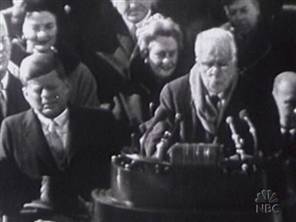On May 1, I had the pleasure of speaking at Immigrant Rights Day rally in Rochester. If you’re interested, here’s what I had to say:
Buenos tardes. Mi nombre es Jason Crane. Soy un organizador para al sindicato UNITE HERE. UNITE HERE representa a trabajadores en las industrias siguientes: tejidos, lavanderÃas industriales, hoteles, casinos, servicio de alimento, aeropuertos y restaurantes. Mi sindicato cree que ninguna persona es ilegal. Cada trabajador tiene derechos legales, derechos civiles, y derechos de trabajo. Por favor perdóneme, pero el resto de este discurso es en inglés.
Good afternoon. My name is Jason Crane. I’m an organizer with UNITE HERE. UNITE HERE represents workers in textiles, industrial laundries, hotels, casinos, food service, airports and restaurants. My union believes that no person is illegal. We believe that all workers have legal rights, civil rights, and labor rights.
UNITE HERE supports the broadest possible legalization program for the 11-12 million currently undocumented workers. They’re here, they’re working, they’re contributing to our country. They should become legal permanent residents and then be able to earn their way to citizenship.
UNITE HERE does not support Bush’s guest worker program. However, we recognize that there’s going to be a future flow of immigrant workers. That’s why we support an immigrant worker visa with the following features:
- The visa must allow an immigrant worker to petition on his or her own for permanent residence.
- The new worker can’t be tied to an employer — there must be job portability. If you come to this country and go to work for a boss who treats you badly, you should be able to leave and go to work for somebody better.
- Immigrant workers must have the same legal, labor and civil rights protections that domestic workers have. They’re American workers, not second-class workers.
UNITE HERE supports family reunification. The government backlog is so huge right now that many workers with legal residence have to wait 10-15 years or longer for their spouses and children to get family visas. We want that backlog cleared up so that these families can be reunited.
Right next to this building is the Crowne Plaza Hotel, where the workers have been fighting for almost a year to get management to respect their right to choose whether or not they form a union. Many of these workers are immigrants from places like the Dominican Republic, Haiti, and Vietnam. They came here to find a better life for themselves and their families. At the Crowne Plaza, many of these workers make poverty-level wages, and many can’t afford health care. Is this the promise of America?
UNITE HERE thinks we can do better. We’re committed to helping workers in our industries create power for themselves so they can have respect on the job, so they can take care of their families, and so that life, liberty and the pursuit of happiness are more than pretty words.
Most people have forgotten why May 1 is an important day in the lives of workers. On May 1, 1886, close to 300,000 workers nationwide, including more than 40,000 in Chicago, took part in demonstrations for the eight-hour day. On May 4, workers rallied at Haymarket Square in Chicago to protest police brutality against striking workers on the South Side. As the last speaker finished his remarks, police marched in and demanded an end to the gathering. Then an unknown assailant threw a bomb into the crowd, killing and wounding several police officers and workers. Police arrested eight anarchists on charges of conspiracy to commit murder. All eight were found guilty and four were executed: Albert Parsons, August Spies, Adolf Fischer, and George Engel. The latter three were German immigrants.
The trial is often referred to by scholars as one of the most serious miscarriages of justice in United States history. Most people now believe that Pinkerton agents provoked the incident. In HYPERLINK “http://en.wikipedia.org/wiki/1893” \o “1893” 1893, Illinois Governor HYPERLINK “http://en.wikipedia.org/wiki/John_Peter_Altgeld” \o “John Peter Altgeld” John Peter Altgeld concluded that all eight defendants were innocent and signed pardons for those still alive.
As we stand here on State Street in front of the seat of government and next to the site of ongoing labor struggle, let’s remember the millions of immigrants who built this country. My union, UNITE HERE, pledges to fight for the rights of those who are here now and those yet to come. Thank you.


